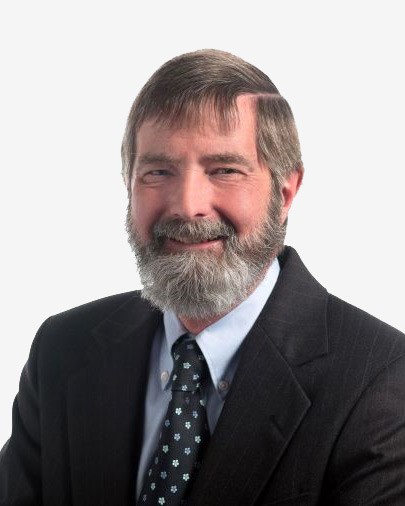 Champaign, IL – July 14, 2021 - Paul S. Kindstedt, a professor in the Department of Nutrition and Food Sciences at the University of Vermont, assumed the role of president of the American Dairy Science Association® (ADSA®) during the 2021 ADSA Virtual Annual Meeting held July 11 to 14. He will serve as president of the association for one year. Dr. Kindstedt served as vice president of the organization for the past year. He has been a member of ADSA since joining as a graduate student in 1979. Kindstedt has served the association in many capacities over the years, most recently as a member of the ADSA board of directors, member of the Overall Programming Committee, founder and chair of the Dairy Foods Division International Partnership Program, and chair of the board of trustees of the ADSA Foundation.
Champaign, IL – July 14, 2021 - Paul S. Kindstedt, a professor in the Department of Nutrition and Food Sciences at the University of Vermont, assumed the role of president of the American Dairy Science Association® (ADSA®) during the 2021 ADSA Virtual Annual Meeting held July 11 to 14. He will serve as president of the association for one year. Dr. Kindstedt served as vice president of the organization for the past year. He has been a member of ADSA since joining as a graduate student in 1979. Kindstedt has served the association in many capacities over the years, most recently as a member of the ADSA board of directors, member of the Overall Programming Committee, founder and chair of the Dairy Foods Division International Partnership Program, and chair of the board of trustees of the ADSA Foundation.
Kindstedt received his BS in dairy technology (1979) and MS in animal science (1981) from the University of Vermont, and his PhD in food science from Cornell University (1986). In 1986 Kindstedt joined the faculty at the University of Vermont and rose through the ranks to full professor in 1995. Over the years Kindstedt has authored or co-authored two books, numerous book chapters and conference proceedings, and over 90 refereed publications, the lion’s share of the latter being archived in the Journal of Dairy Science. Kindstedt received two awards from the association for his group’s research in 1993 and 2018, as well as an award for teaching in 2008.
In 2019, Kindstedt shifted away from laboratory research to focus on professional service and other forms of scholarship as his career enters its final season. Kindstedt looks beyond the current COVID-19 situation to a future where ADSA is a nexus of greatness and goodness, on behalf of our stakeholders and humanity.
In seeking his current role Kindstedt shared thoughts in several areas about the future of ADSA. First, his deepest desire is to see the Production and Dairy Foods Divisions seamlessly integrated and projecting a vision of farm-to-table science that captivates and energizes today’s students. He noted that ADSA began more than a century ago as a vertically integrated commodity-based scientific society. Ironically, the association now finds itself at the cutting edge, culturally, because we are vertically integrated, we are farm-to-table, and we are dedicated to nature at its best—milk. Kindstedt believes that ADSA owns the future if we remain true to what we have always been—dairy, start to finish.
Second, Kindstedt believes that scientific societies dedicated to animal agriculture must work together for the good of humanity. The forces now allied against animal agriculture, and the technical challenges that we collectively face in animal agriculture and its place in society, the realm of climate change mitigation and sustainability, are formidable. ADSA has a long history of partnerships with other animal science organizations. By building partnerships, ADSA can unite the diverse global scientific community that supports animal agriculture.
Third, Kindstedt believes the time is right for ADSA to continue to expand its leadership internationally by forging new partnerships with cutting-edge dairy science organizations beyond North America, including organizations that are serving the vast swath of humanity in the developing world that relies on traditional dairying such as mobile pastoralism. Traditional dairying matters, and ADSA has the potential to unite and mobilize the global dairy science community under the common goal of serving humanity, including some of the world’s most vulnerable communities. ADSA is positioned to consider new initiatives that are overtly global in scope and altruistic at heart.
Fourth, ADSA must work to regain the public’s trust. If ADSA is to serve our stakeholders effectively and change the world for the better, we must be prepared to counter the avalanche of misinformation and shabby rhetoric that is hurled against dairy with thoughtful, balanced, scientifically sound, evidence-based arguments that will capture both mind and heart. To do so, Kindstedt believes that we will need the help of social scientists to navigate the torrent of changes that are taking place in our culture. Perhaps the time has come to carve out a dedicated place in ADSA and the Journal of Dairy Science for colleagues in the social sciences whose expertise and interests overlap with ours, so that we can mobilize their skill sets to enhance our effectiveness.
ABOUT THE AMERICAN DAIRY SCIENCE ASSOCIATION® (ADSA)®
The American Dairy Science Association (ADSA) is an international organization of educators, scientists, and industry representatives who are committed to advancing the dairy industry and keenly aware of the vital role the dairy sciences play in fulfilling the economic, nutritive, and health requirements of the world's population. It provides leadership in scientific and technical support to sustain and grow the global dairy industry through generation, dissemination, and exchange of information and services. Together, ADSA members have discovered new methods and technologies that have revolutionized the dairy industry. www.adsa.org